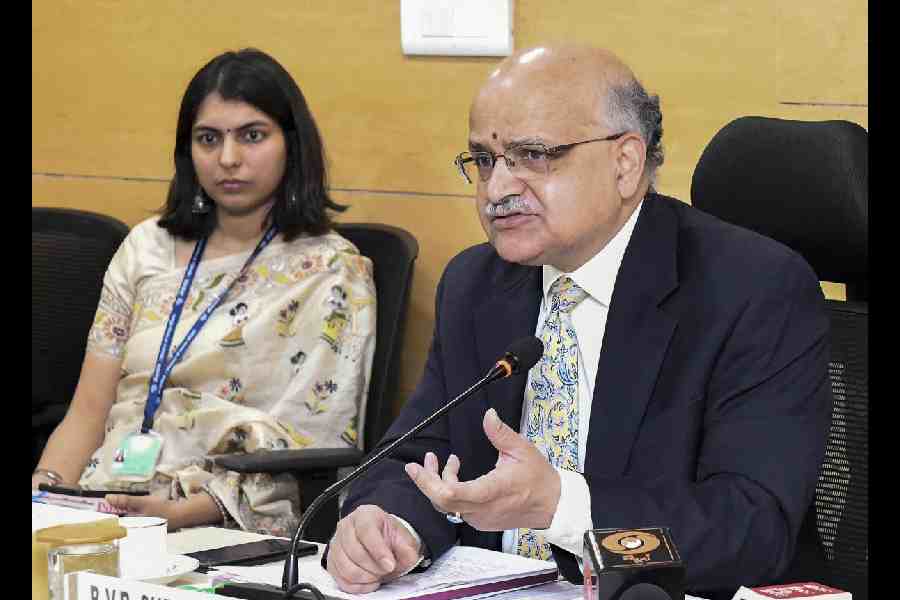Tariff does not protect any country and India needs to cut tariffs for its own good, irrespective of who tells India to do so, Niti Aayog CEO B.V.R. Subrahmanyam said on Friday.
Addressing the 69th Foundation Day of the All India Management Association (AIMA), Subrahmanyam further said that being open to the world has to be among the top five priorities of India if it wants to become a developed country.
To cut tariffs, India must complete trade agreements with the European Union, the United Kingdom and other major economies, he added.
The Niti Aayog CEO stressed that deregulation at both the Centre and the state levels are critical for making India a part of the global supply chains. There is interest in India but people visit, see and fly to other countries, he said.
Subrahmanyam pointed out that Indonesia, Vietnam, Turkey and others have been beneficiaries of ‘China plus one’ strategy of global companies. He argued that global value chain needs more than PLI (production linked incentive) — it also needs deregulation and skilling.
The Niti Aayog CEO termed the paperwork involved in business horrendous, which is killing the MSMEs.
According to him, the Niti Aayog is trying to push India into global supply chains in different sectors.
He informed that the Aayog’s recommendations for the electronics component supply chain are awaiting cabinet clearance and it is working on the steps needed by auto component, chemicals, textiles and footwear sectors to join global supply chains.
US proposal
India should propose a ‘zero-for-zero’ tariff strategy to the US for addressing America’s proposed reciprocal tariff hikes, as it would be less harmful than negotiating a full bilateral trade agreement, economic think tank GTRI said in its report on Friday.
Under this strategy, the Global Trade Research Initiative (GTRI) suggested the government identifies tariff lines (or product categories) where India can eliminate import duties for American imports without harming domestic industries and agriculture.
In lieu of that, the US should also remove duties on a similar number of goods.
India can exclude most agriculture items from this list and to prepare it, India can refer to its free trade agreement (FTA) tariff offers to Japan, Korea and Asean as a starting point, it added.
GTRI founder Ajay Srivastava said this list should be discussed with the US before April, ahead of its reciprocal tariff announcement.
Steel duty
The industry is waiting for an action from the government to check steel imports, which are affecting the domestic players, Tata Steel CEO T.V. Narendran said on Friday.
He also warned future investments in the steel sector getting impacted due to the present situation of surging imports.
The steel industry has been one of the biggest private sector investors over the last few years.
All players in the industry have announced big expansion plans. One round of expansion is getting completed, he said on the sidelines of the AIMA event in the national capital.
A lot of steel which can’t find other markets end up in India and depress prices here to levels at which the steel company struggle to have healthy cash flows, Narendran, who is also the senior vice-president of the AIMA, said.
At some point in time, future investments can’t get impacted, he said.
The comments assume significance as India aims to take its overall installed steel manufacturing capacity to 300 million tonnes (mt) by 2030 and aligned with this vision of the government, all large steel players have already announced their expansion plans.
Steel and stainless steel industry players have been consistently raising the issue of import with the government, claiming the surge in inbound shipments from select group of countries including China has affected their competitiveness.











